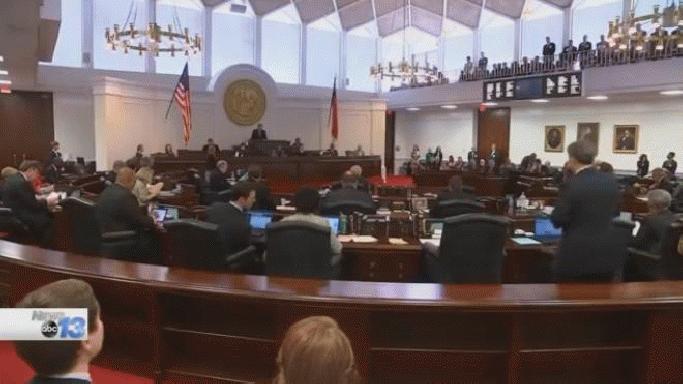-
Tips for becoming a good boxer - November 6, 2020
-
7 expert tips for making your hens night a memorable one - November 6, 2020
-
5 reasons to host your Christmas party on a cruise boat - November 6, 2020
-
What to do when you’re charged with a crime - November 6, 2020
-
Should you get one or multiple dogs? Here’s all you need to know - November 3, 2020
-
A Guide: How to Build Your Very Own Magic Mirror - February 14, 2019
-
Our Top Inspirational Baseball Stars - November 24, 2018
-
Five Tech Tools That Will Help You Turn Your Blog into a Business - November 24, 2018
-
How to Indulge on Vacation without Expanding Your Waist - November 9, 2018
-
5 Strategies for Businesses to Appeal to Today’s Increasingly Mobile-Crazed Customers - November 9, 2018
Lawmakers agree on a spending amount, budget details yet to be resolved
Governor Pat McCrory held a breakfast meeting at the mansion Tuesday in which leaders agreed the budget would total $21,735,000,000. Senate leader Phil Berger, R-Rockingham, has said that the 2.7 percent increase over last year’s spending would be in line with inflation and population growth.
Advertisement
House and Senate Republicans exchanged proposals late last week that seek to finalize how much the chambers would agree to spend in the two-year plan.
The Senate again has passed a bill containing a retooled formula for distributing annually more than $2.5 billion in sales taxes for counties and municipalities.
The two-year budget was supposed to be done by July 1.
North Carolina is currently operating under a second continuing resolution after lawmakers failed to reach a budget deal before the previous budget expired June 30.
“This agreement is the result of ongoing dialogue during the last several weeks”, McCrory said in a release. “We remain committed to working with the House and Senate to find common sense solutions that create jobs, strengthen education and fund critical infrastructure in North Carolina”, McCrory said in a statement.
The House budget had a 2 percent raise for all state employees, while the Senate wanted to instead offer targeted raises for hard-to-fill positions. Dan Soucek, co-chair of the Senate education committee. Lawmakers must now work out how the $21.735 billion will be spent.
“A number of the items the House was looking to invest in, particularly pay issues, obviously there will be far less money available for salary increases for teachers and state employees”, said Rep. Nelson Dollar, a Wake County Republican. For teacher assistants, the Senate proposed a 50 percent decrease in funding, while the House proposed keeping funding at current levels. House Speaker Tim Moore, R-Cleveland, reiterated his proposal to give block grants to school districts so they can decide how to distribute funds between hiring teachers and assistants.
Advertisement
These are anxious times for local government officials when it comes to the North Carolina General Assembly.





























